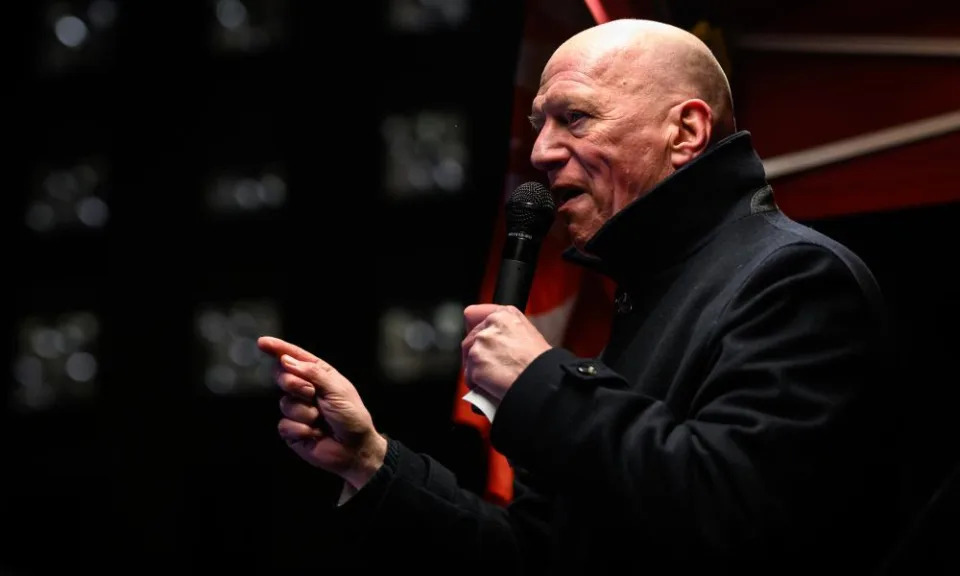Joshua Askew
Fri, 24 March 2023

The boss of the notorious Wagner mercenary force has openly contradicted key aspects of the Kremlin's narrative about the Ukraine war, according to the US-based Insitute for the Study of War (ISW).
Yevgeny Prigozhin denied claims Russia is fighting NATO and questioned whether there are actually Nazis in Ukraine.
The Kremlin has repeatedly justified its invasion of its neighbour as necessary to purge Kyiv of neo-Nazis, who threaten the peace and security of Russia, despite there being little evidence of this.
In parallel, it has increasingly pitched the war as an existential struggle against NATO, which they claim is butting up against Russia's borders.
Prigozhin said Moscow is fighting “exclusively with Ukrainians” equipped with NATO-provided equipment and some “Russophobic” mercenaries who voluntarily support Ukraine - but not NATO itself, said the ISW on Thursday.
He expressed doubt about “denazification” objectives in Ukraine, unsure “Nazis” were in the country, while "effectively rejecting" the long-standing Kremlin claims that Russia needs to defend itself against a NATO threat.
"It is ridiculous to think" that Russian officials did not know NATO would come to Kyiv's aid, the ISW quoted Prigozhin as saying.
Once a close ally of Russian President Vladimir Putin's, the paramilitary unit which includes former convicts in its ranks has become increasingly conspicuous on the battlefield in Ukraine, with Prigozhin appearing to challenge the conventional Russian army on several occasions.
Independent Russian outlets have speculated that Prigozhin might have political ambitions of his own in mind.
Wagner troops have been engaged in a gritty, tooth-and-claw struggle for Bakhmut in eastern Ukraine, which is believed to have depleted its ranks, recently filled with as many as 40,000 prisoners.
In its Thursday assessment, the ISW said Prigozhin had "softened his rhetoric towards the Russian Ministry of Defense (MoD) likely out [of] fear of completely losing his mercenary force in Bakhmut."
He raised concerns about a possible Ukrainian counter-offensive, claiming 200,000 reserves were massing on the eastern front.
The ISW said these "exaggerated statements... [were] likely an attempt to secure more supplies and reinforcements from the Russian MoD to save his forces in Bakhmut."
Between 20,000 and 30,000 Russian troops have been killed and wounded in the battle for the old salt mining town since it began last summer, Western officials say.
The seismic nature of the battle is out of all proportion to Bakhmut's strategic significance, they add.
However, the fight has become deeply symbolic, with Russia keen for clear battlefield victories after a series of setbacks and Ukraine wanting to prove its mettle to western backers.
In an implicit nod to divisions within the Kremlin, Prigozhin also called on the Russian military and media to stop underestimating Ukrainian forces and engaging in internal conflicts.
The killing of nine Chinese goldmine workers in the Central African Republic last Sunday has been reported to be tied to Wagner, and the fact that it coincided with a long-awaited meeting between Putin and Chinese President Xi Jinping has further soured the relationship between the group and Moscow.
The Russian MoD has been trying to diminish and reduce the role of Wagner forces in Ukraine, with Bloomberg reporting it will not allow the mercenary leader to get the credit for Bakhmut on TV.
Some 90% of Bakhmut's pre-invasion population have fled since the fighting started.








